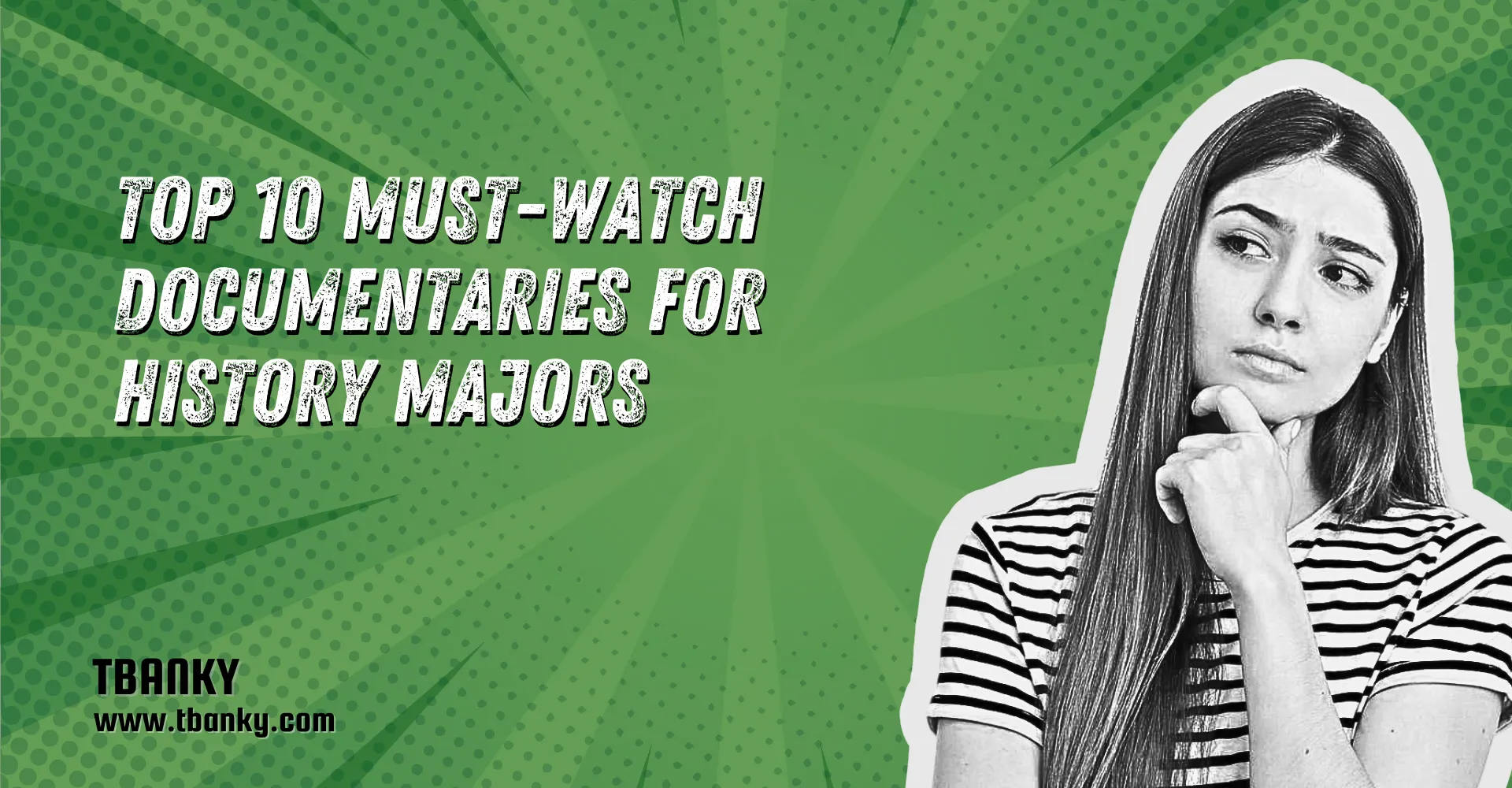History majors are not just about textbooks and exams; they’re also about understanding the richness and complexity of the past through the lens of the present. As visual storytelling has evolved, documentaries have become a powerful tool in educating and engaging students in historical content. For those studying history, or even those with a penchant for the past, documentaries can provide a visceral connection to the events, figures, and narratives that have shaped our world. Here’s a list of the top 10 must-watch documentaries that offer a profound look into various epochs, insights into human experiences, and inspiration for the history enthusiasts out there.
1. The Civil War by Ken Burns
Ken Burns’s “The Civil War” is a seminal masterpiece that recounts one of the most tumultuous periods in American history. Spanning nine episodes, this epic documentary intricately weaves personal stories with political and military events, utilizing archival photographs, journal entries, and detailed first-hand narrations. Its storytelling brilliance lies in the comprehensive portrayal of human costs and the shaping of the United States from the embers of division. This documentary is essential for history majors looking to understand the impact of the Civil War on the American conscience.
2. The World at War
Originally broadcasted in the 1970s, “The World at War” remains one of the most thorough visual accounts of World War II. Over 26 episodes, the series presents a global view of the war’s complexity, from the rise of Nazism to the dropping of the atomic bomb. Narrated by Sir Laurence Olivier and featuring interviews with major military and political figures, including Albert Speer and Traudl Junge, this historical documentary offers invaluable insights into the era’s strategic, political, and human dimensions.
3. The Fog of War
For a deep dive into the complexity of military strategy coupled with the moral implications, history majors should watch Errol Morris’s “The Fog of War.” This engaging documentary provides an intimate interview with Robert S. McNamara, Secretary of Defense during the Vietnam War. Through McNamara’s candid reflections on his role in shaping US military policy and the lessons he learned, viewers gain a profound understanding of the nature of modern conflict and the often-ambiguous veil between right and wrong during wartime.
4. The Act of Killing
“The Act of Killing” is a chilling and innovative documentary that examines the individuals behind the Indonesian massacres of 1965-1966. Instead of a traditional narrative, the film has perpetrators reenact their crimes in the style of the Hollywood genres they adore. This approach provides an unsettling look into the psyche of killers and the cultural forces that sanction such acts. This documentary is crucial for those seeking to understand the depths of human morality and the construction of historical memory.
5. 13th
Ava DuVernay’s “13th” is a piercing examination of race, justice, and mass incarceration in the United States. The documentary is named after the 13th Amendment, which banned slavery and involuntary servitude “except as a punishment for crime.” Through a series of interviews and historical footage, the film articulates the persistent legacy of slavery and its transformation into modern forms of disenfranchisement and imprisonment, offering a critical perspective on structural inequality that is pivotal for understanding contemporary American society.
6. Shoah
Claude Lanzmann’s “Shoah” is a monumental documentary study of the Holocaust, using interviews with survivors, bystanders, and perpetrators to weave a gripping narrative of this atrocity without resorting to historical footage. Spanning over nine hours, its intimate approach offers a profound meditation on memory, guilt, and survival. History students will find this immersive exploration of the Holocaust a haunting reminder of moral responsibility and the importance of historical remembrance.
7. They Shall Not Grow Old
Peter Jackson’s “They Shall Not Grow Old” is a technological marvel that brings World War I to life in a way never seen before. By colorizing and restoring century-old footage and pairing it with audio recordings of British soldiers’ personal anecdotes, the documentary provides a vivid and humanizing portrayal of the Great War’s soldiers. History majors will gain a visceral sense of the daily realities of WWI and the lasting impact of its legacy.
8. I Am Not Your Negro
“I Am Not Your Negro” is a powerful documentary that connects the Civil Rights movement to the present racial struggles in America. Based on James Baldwin’s unfinished manuscript “Remember This House” and narrated by Samuel L. Jackson, the film explores the lives and assassinations of Medgar Evers, Malcolm X, and Martin Luther King Jr. This poignant work is essential viewing for anyone interested in the history of race relations and the power of words to inspire change.
9. The Last Emperor
Though a dramatized biographical film, “The Last Emperor” provides substantial historical context as it details the life of Puyi, the last Emperor of China. From his ascension to the throne as a child to his life following the fall of the empire, this visually stunning movie paints a portrait of China’s political upheaval during the 20th century. It touches upon the complexities of tradition, revolution, and personal transformation amidst historical shifts, offering a rich tapestry of Chinese history and culture.
10. Paris is Burning
For a look at cultural history, “Paris is Burning” is a landmark documentary that captures the vibrancy and resilience of the 1980s New York City drag scene. The film provides a critical look into the lives of LGBTQ+ individuals and drag performers involved in the ballroom community, offering insights into issues of race, class, gender, and sexuality. This piece of social history is critical for understanding movements in identity and the role of subcultures in shaping broader cultural narratives.

